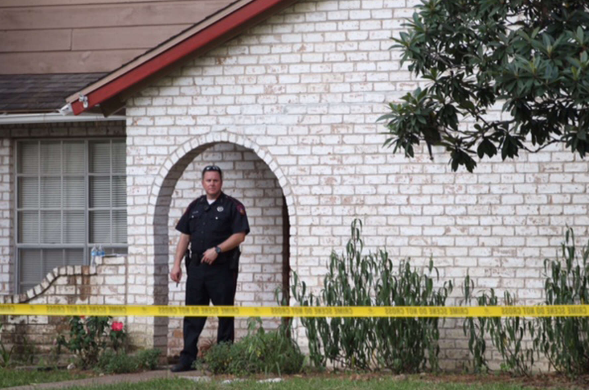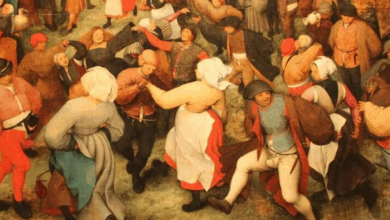The Man Behind the Disguise

Delivering Death: The Leaflet Lane Murders

On July 9, 2014, a quiet suburban neighborhood in Spring, Texas, was shattered by a horrifying act of violence. Ronald Lee Haskell, disguised as a FedEx deliveryman, arrived at the home of Stephen and Katie Stay, seeking vengeance rooted in a bitter family dispute. What unfolded was a calculated and brutal massacre that claimed six lives and left a community in mourning.
The Man Behind the Disguise

Ronald Lee Haskell, 33 at the time, had a documented history of domestic violence and mental health issues. His marriage to Melannie Kaye Lyon, sister of Katie Stay, had ended in divorce, and he harbored deep resentment towards her family, whom he blamed for the separation. Haskell’s violent tendencies had previously led to restraining orders and arrests, painting a picture of a man teetering on the edge of control.
The Tragic Events at Leaflet Lane
Dressed in a FedEx uniform, Haskell knocked on the door of the Stay residence at 711 Leaflet Lane. Fifteen-year-old Cassidy Stay answered. Initially, Haskell left, but he returned shortly after, revealing his identity. When Cassidy attempted to close the door, Haskell forced his way in, binding her and making her lie face down. He awaited the return of her parents and siblings.
Upon the family’s return, Haskell bound them as well, demanding information about his ex-wife’s whereabouts. Receiving no answers, he executed each family member by shooting them in the back of the head. Stephen and Katie Stay, along with their children—Bryan (13), Emily (9), Rebecca (7), and Zachary (4)—were all killed. Miraculously, Cassidy survived; the bullet grazed her skull, and she played dead until Haskell left
A Heroic Survivor
Despite her injuries, Cassidy managed to call 911, providing critical information about Haskell and his intended next target: her grandparents. Her quick thinking and bravery alerted authorities, potentially saving more lives. Cassidy’s resilience became a symbol of courage in the face of unimaginable tragedy.
The Manhunt and Arrest

Following the massacre, Haskell fled the scene in the family’s vehicle. Police located him nearby, leading to a tense three-hour standoff. Haskell eventually surrendered without further incident. He was charged with six counts of capital murder and held without bond.
Trial and Sentencing
Haskell’s trial began in August 2019. His defense team argued that he suffered from mental illness, but the prosecution presented evidence of premeditation and calculated execution. On September 26, 2019, Haskell was found guilty of capital murder. He was sentenced to death by lethal injection on October 11, 2019, and remains on death row at the Allan B. Polunsky Unit in Texas.
Community Response and Legacy
The tragedy deeply affected the Spring community and beyond. Vigils and memorials were held to honor the Stay family. A GoFundMe campaign for Cassidy raised over $400,000, reflecting widespread support and admiration for her bravery.
The case also sparked discussions about domestic violence, mental health, and gun control, highlighting the need for systemic changes to prevent similar tragedies
Conclusion
The Leaflet Lane murders serve as a grim reminder of the devastating impact of domestic violence and unchecked rage. Yet, amidst the horror, Cassidy Stay’s survival and courage offer a beacon of hope and resilience. Her actions not only saved lives but also inspired a community to come together in the face of tragedy





